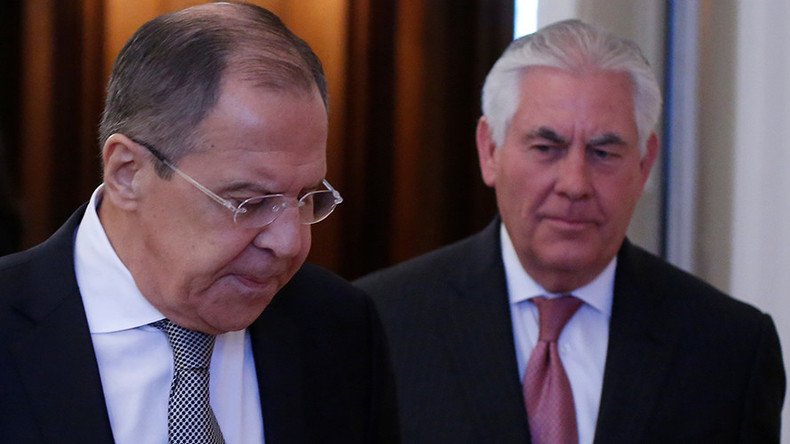Tillerson calls Lavrov to discuss Russia-US cooperation on Syria

Russian Foreign Minister Sergey Lavrov held a telephone conversation with US Secretary of State Rex Tillerson, the Russian Foreign Ministry said in a statement on Facebook on Friday.
"The foreign policy leaders discussed prospects for further cooperation in resolving the Syrian conflict with an emphasis on the sustainable functioning of de-escalation zones," the statement said.
The initiative for the call came from the US side.
Specifics of de-escalation zones in Syria discussed at ongoing Astana talks.
There are currently three zones of de-escalation in effect in Syria; one in the south, negotiated with Jordan and the US, another in eastern Ghouta and a third in Homs.
Russia sees the de-escalation zone plan for Syria as an important step forward in the peace process. The deal for a fourth zone around Idlib may be finalized during the Astana talks, Russian
READ MORE: Losing in Syria, the US will target Russia more than ever
Foreign Minister Sergey Lavrov said last week.
The de-escalation zones are part of a plan to curb violence in Syria mooted by Russia, Turkey and Iran. They are a temporary measure intended to pave the way for peace talks and a resolution to the six-year armed conflict in Syria.
“This is not a permanent measure and nobody among those who supported the creation of those zones has an intention to keep them forever and, in effect, create some kind of enclaves in the Syrian territory for years to come,” the Russian foreign minister said last week during a press conference with Saudi Foreign Minister Adel al-Jubeir.
“The agreement is for them to be in effect for six months. The result is already evident; the ceasefire is holding overall,” he added.
“The purpose of the zones is to spread the ceasefire regime throughout all of Syria.”












